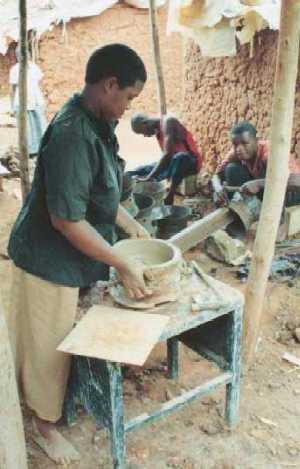a livelihood analysis

| Improved
Household Stoves and Poverty Reduction
a livelihood analysis |
 |
 Production of clay liners for a Lakech improved charcoal stove |
Since the
1980s, numerous programmes have been launched to improve wood and charcoal
household stove efficiencies in the developing world. In many cases, and
in certain countries, these projects have failed to establish sustainable
improved stove production.
In 1999, DFID's Knowledge
and Research programme funded a team of experts to investigate the poverty
reduction aspects of improved household wood and charcoal stoves, with
the ultimate aim of identifying the key success factors for sustainable
improved stove production and supply. This website has been
designed to make the key findings of the project available to as many
national and international stakeholders as possible. |
The project was funded by DFID's KaR (Knowledge and Research) Programme, and was carried out by ESD (UK), EAA (Kenya), MGP (Ethiopia), RTE (Kenya) and REDC (Uganda).
For more information on the team that carried out the work, click here.
This site brought to you by Energy for Sustainable Development (ESD) Limited